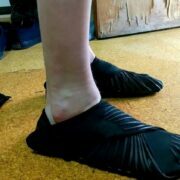People make their own soaps for a variety of reasons. Some are just very particular with the products they use and want to make sure that they’re using all-natural soaps with no harsh chemicals or ingredients. Others love adding their own combination of scents and ingredients to personalize the soap they use. Whatever the reason may be, the art of soap making is being appreciated by more and more people – both young and old.
Soap making is a wonderful hobby that can also become a good source of income. There are now online shops or stores that specialize in organic and hand made soaps. While the process itself is not complicated, there are a few things beginners must remember about making soap. Here are the top 4:
- Follow Exact Measurements
Soap making is similar to baking in the sense that quantities must be accurate. If you’ve been making soap for a long time then maybe you can trust your own instincts and add your ingredients by feel. However, if you’re just starting out, it’s best to follow the recipe to the letter.
- Have the Right Tools
Make sure you have measuring tools such as cups, weighing scales, etc. Additionally, these must be earmarked solely for soap making – don’t use your baking cups to measure out additives. If you’ll just be measuring oatmeal, herbs, coffee, or cornmeal, that will be all right since these are ingredients that are also consumed at home.
When it comes to equipment, it will be best to have a separate set for making soaps. Tempered glass mixing bowls, enamel cookware, or stainless steel pots are recommended for the process. But unlike cooking, copper or aluminum pots are not ideal since they do react with the lye. Plastics, on the other hand, can melt with the high temperature. That’s why silicone molds are also the better choice. Lastly, you will also need to invest in a stainless steel thermometer that can read temperatures between 90 and 200 degrees.
- Be Very Careful When Handling Lye
Hand made soaps are also made with lye. Expert soap makers swear that there’s no substituting for lye in the soap making process. They recommend using lye in its crystal form and not to use liquid lye because it may result to inaccurate measurements. People must wear gloves, masks, and protective eye gear when handling lye. When mixed with water, it heats up and fumes for a little while.
More importantly, always remember to add lye to water and not the other way it around. It must also be stirred immediately so it doesn’t clump up at the bottom. Lye is caustic and will react with the oil in your soap mixture; but don’t worry, the process of saponification ensures that no lye is left in the finished soap product.
- Add Scents and Ingredients You Love
Some people enjoy hand made soaps because they’re able to create their own signature scents. For beginners, it’s safe to play around with scents and textures that you’re familiar with. For example, lavender and oatmeal, peppermint, or lemon and rosemary. Once you’ve become more familiar with different ingredients and their properties, you can start being more inventive with your choices.
You can use your soap creations to perk up bath time for the rest of your family by sending them bars of your hand made soaps as gifts. It’s a thoughtful gesture that is always well-appreciated no matter what occasion.






















Comments